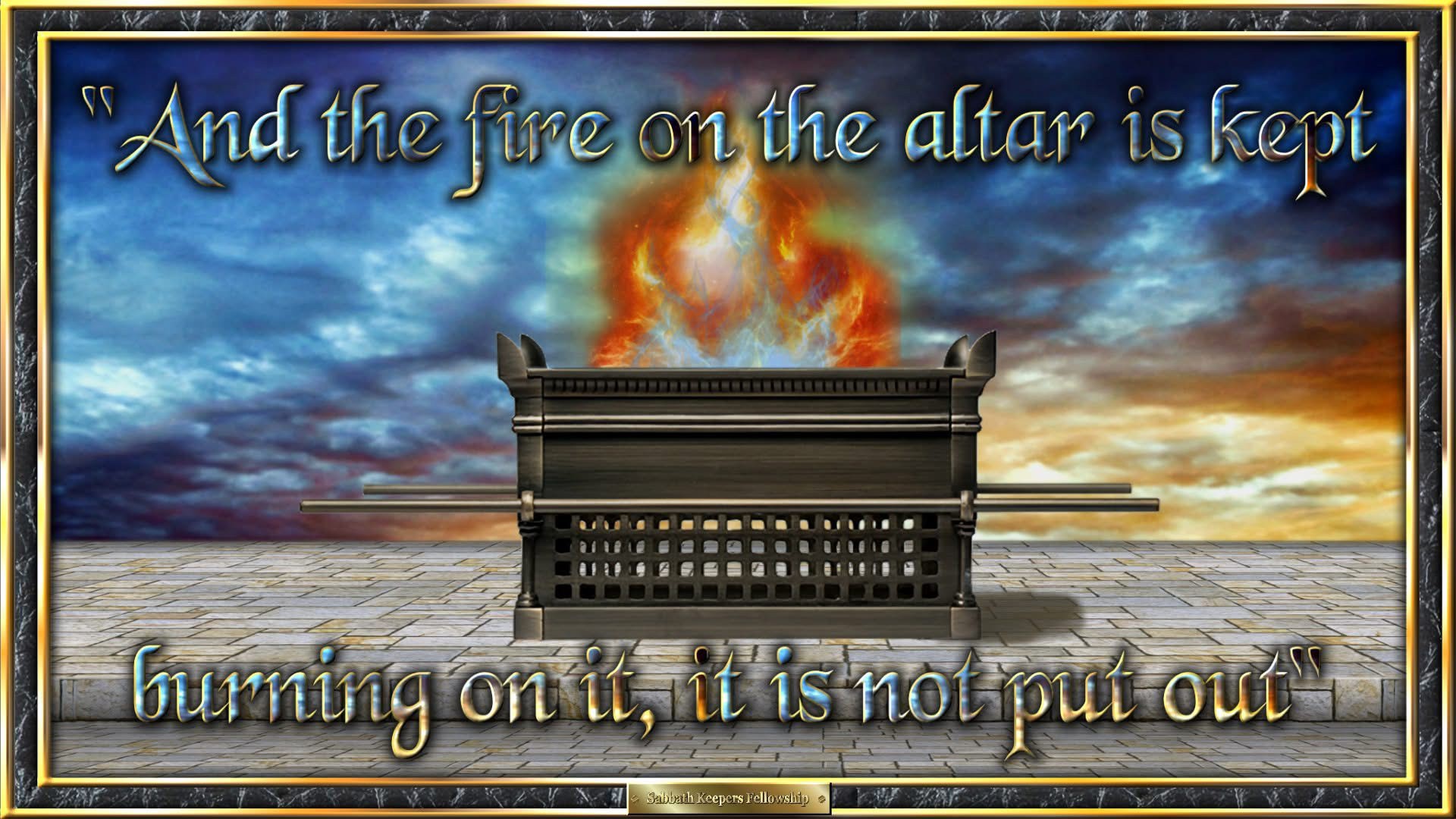Watch
Events
Articles
Market
More
FROM THIS WEEK’S TORAH PORTION – TZAV:
“And YHWH spoke to Moshe, saying, ‘Command Aharon and his sons, saying, “This is the Torah of the ascending offering: This is the ascending offering, because it is burned on the altar all night until morning, and the fire of the altar is kept burning on it. And the priest shall put on his linen garment, and put his linen trousers on his body, and shall take up the ashes of the ascending offering which the fire has consumed on the altar, and shall put them beside the altar. And he shall take off his garments, and put on other garments, and shall bring the ashes outside the camp to a clean place. And the fire on the altar is kept burning on it, it is not put out. And the priest shall burn wood on it every morning, and arrange the ascending offering on it, and shall burn on it the fat of the peace offerings – fire is continually kept burning on the altar, it is not put out.’”
The Torah does not repeat itself for no reason. In this single passage from parshath Tzav, the command to keep the fire burning “continually” (תָּמִ֛יד – tamid) is repeated no less than three times. What are we to make of this?
Some scholars say that this repetition simply indicates stress and importance. Others say that each instance has it’s own distinct purpose. It is opined that the distinct purpose for the repetition in this instant passage is:
1. The first instance is literal, that the fire on the bronze altar itself must never be allowed to go out.
2. The second instance is figurative, the fire of faith and obedience in the hearts of the children of Yisrael must never be allowed to go out.
3. The third instance is reciprocal, that the fire of love and faithfulness that YHWH has for His people Yisrael will never go out.
Whichever opinion is correct, it is a beautiful symbology and a command we should strive always to keep – continually.



